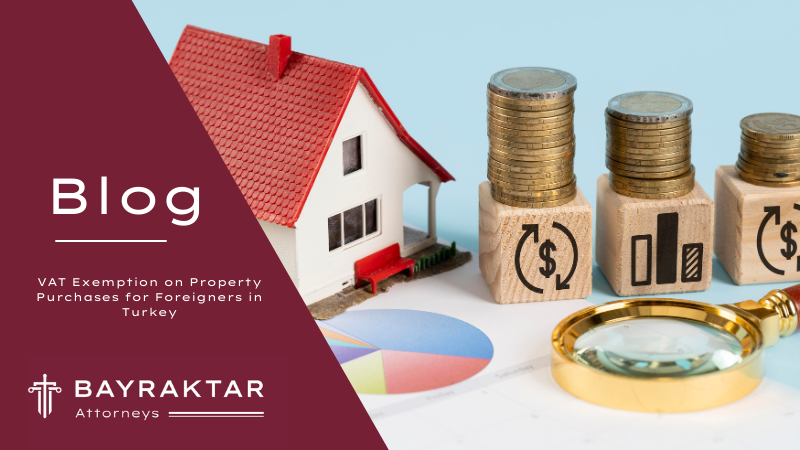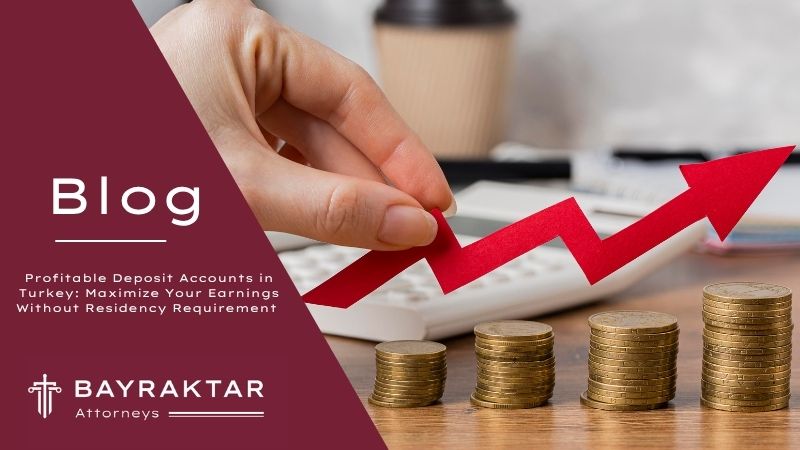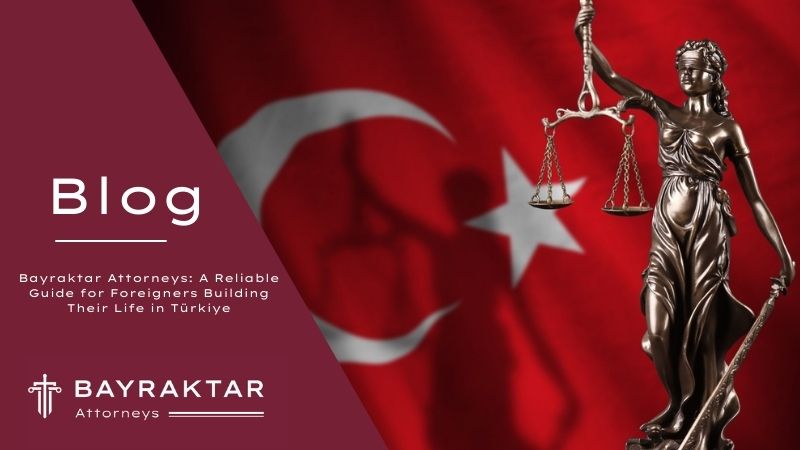
To encourage property sales to foreigners, amendments have been made to the legislation regarding the acquisition of Turkish citizenship for foreign nationals under the Turkish Citizenship Law No. 5901.
In line with this approach, the Law No. 6824 on the Restructuring of Certain Receivables and Amendments to Some Laws and Decree-Laws introduced a VAT exemption for foreign buyers on residential and commercial property purchases through the addition of a new clause to Article 13 of the VAT Law (Law No. 3065).
This exemption, which became effective on April 1, 2017, provides that foreign individuals and entities, as well as Turkish citizens living abroad, can benefit from VAT exemption under certain conditions when purchasing property. This article explains the requirements and key details of the VAT exemption process.
Eligible Buyers for the Exemption
To qualify for the exemption under Article 13/1-i of the VAT Law, the property sale must be made to one of the following individuals or entities:
- Turkish citizens who have lived abroad for more than six months with a work or residence permit (excluding those working abroad on behalf of government offices or institutions, or entities headquartered in Turkey),
- Foreign individuals who are not resident in Turkey,
- Entities without a legal or business center in Turkey and that do not generate income through a permanent establishment or representative office in Turkey.
Moreover, buyers eligible for this exemption can purchase multiple properties (residential or commercial) under the exemption, provided they meet the necessary conditions.
For foreigners, the non-residency requirement is clarified under Article 4 of the Income Tax Law No. 193. This article stipulates that individuals who reside in Turkey or stay in the country for more than six months in a calendar year are considered residents of Turkey (temporary absences do not affect residency status).
The sellers, who must verify that the buyers meet the exemption requirements, should request the necessary documentation from the buyers before the property title deed transfer. In practice, however, buyers often present these documents to the tax office, obtain a VAT Exemption Certificate, and then provide this to the seller.
Conditions for the Exemption
To qualify for the VAT exemption under Article 13/1-i of the VAT Law, buyers must meet the following conditions:
- First Transfer of a Property Ready for Use as Residential or Commercial PropertyThe property must be classified as a residence, office, apartment, or similar use according to the building permit to qualify for the exemption. Additionally, the property must be fully delivered to the buyer in a ready-to-use state. In properties with established condominium ownership, the title must also be established.A critical point, often misunderstood, even by some legal professionals, is that the VAT exemption is not restricted to a foreign buyer’s first property purchase in Turkey. Rather, the exemption applies to the developer company’s first delivery of the property. This means the exemption can only be claimed when a developer sells a newly constructed property to a foreign buyer for the first time. Secondary sales or resales by individual owners do not qualify for the exemption.
- Payment in Foreign Currency Transferred to TurkeyTo benefit from the exemption, at least 50% of the payment must be transferred to Turkey before the invoice date, with the remaining balance transferred within one year. The transfer of funds to Turkey must be verified. While transactions should ideally be processed through banks, physical transfers of funds are also permissible if documented by customs authorities. Payment to the seller in Turkish Lira is acceptable as long as the funds were initially brought in as foreign currency. It is also essential that the individual making the payment matches the buyer listed on the sales invoice.
- Property Retention Period of at Least 3 YearsBuyers must retain ownership of the property for a minimum of three years from the date of registration with the land registry. If the property is sold before this period, the initially exempted VAT must be repaid with interest. To enforce this, the Land Registry places a note on the property record, stating that if the property is sold within three years, unpaid VAT with interest will be collected from the seller.
Consequences of Failing to Meet Exemption Conditions
If it is found that the exemption was applied without meeting the necessary conditions under Article 13/1-i of the VAT Law, any unpaid taxes, tax penalties, and late fees are jointly collected from both the seller and buyer.
Declaration and Refund Process for Sellers Utilizing the Exemption
For sellers applying the exemption under Article 13/1-i, the exempted sales are reported in the relevant line of the VAT return for the tax period when the property is delivered. The “Delivery and Service Amount” column shows the sale price excluding VAT, while the “VAT Incurred” column includes the total VAT shown on related purchase and expense documents. Sellers are also required to report these transactions using the related form attached to their VAT return for each tax period.
The VAT refund can be requested after the full amount has been transferred to Turkey and paid to the seller. Sellers may submit the necessary documents to claim refunds arising from property sales after full payment.
Conclusion
Under Article 13/1-i of the VAT Law, foreigners and Turkish citizens residing abroad can benefit from VAT exemption on property purchases, provided they meet the necessary conditions. The process requires careful planning of the payment and land registry procedures, as well as effective communication between the buyer and seller to ensure compliance with this exemption.







